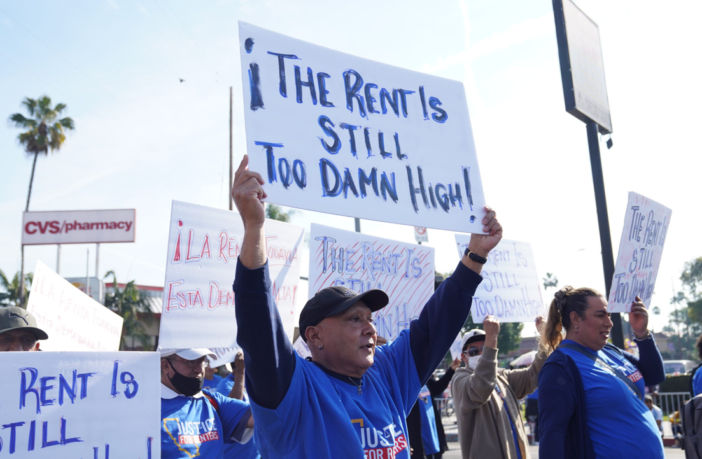Last Updated on July 30, 2024 by BVN
Overview: California renters are struggling to keep pace with rising rental costs, with the average monthly rent in the state currently at $2,867. Proposition 33, which aims to repeal the Costa-Hawkins Rental Housing Act, is designed to address the issue by prohibiting state limitations on local rent control initiatives. The state’s housing crisis has resulted in more renters spending half their income on rent, and the number of homeless in the state continues to rise. The practice of pricing people out of their rentals and requiring them to pay exorbitant deposits to secure a more affordable option elsewhere is not sustainable.
S. E. Williams
The U.S. Census Bureau reports that “renters make up a much larger share of households in California (44%) than in the rest of the US (35%) and according to the Public Policy Institute of California (PPIC), this percentage has remained fairly consistent for nearly six decades.
The state’s housing shortage and symbiotic increase in home prices however, have placed additional pressures on renters. This is partly because the limited inventory of available houses for sale has increased the number of potential home buyers with high-incomes being into the rental market.
About 40 years ago, the average California renter made 13% more than the average renter in the rest of the country. But, by 2022, that difference had ballooned to 40%, On the other hand, homeownership did not increase at the same rate. This has resulted in about one third of the renters in California making more than $100,000 a year—compared to 18% in the rest of the country.
Renters with higher incomes are helping to drive up the cost of rent, while individuals with lower incomes who are struggling today with these higher costs. As rents increase, more and more California renters are struggling to keep pace. More renters in the state now spend half their income on rent—this is more than in all but two states.
Despite this harsh reality, rents continue to rise. In November, renters in California will have an opportunity to weigh in and place some controls over the rising costs of housing by voting “YES” on Proposition 33.
Proposition 33, officially titled the “Prohibit State Limitations on Local Rent Control Initiative (2024),” is designed to accomplish two objectives. First, it will repeal the Costa-Hawkins Rental Housing Act (1995).
“The state may not limit the right of any city, county, or city and county to maintain, enact or expand residential rent control.”
2024 Justice for Renters Act
The 1995 Costa-Hawkins Rental Housing Act prevents cities and counties from placing limits on the initial rental rate landlords may charge to new tenants in all types of housing. It also ties their hands relative to limiting rent increases for existing tenants in residential properties that were first occupied after February 1, 1995, single-family homes and condominiums.
California’s average monthly rent in 2021 was $1,818. A new report from the real estate market place company Zillow, shows the median rent for all bedrooms and all property types in California is currently $2,867.
High and middle income earners in the rental market are better able to absorb the pressure of ever increasing rental costs or move to a less expensive option; but for low income residents in the inland region and beyond, the options are limited. Even if they are able to find a place where the rent is less, rental deposits and the cost of moving often serve as barriers to relocating. Some are priced out of their units and end up homeless, adding to the state’s other housing related crisis.
Approximately 171,000 Californians are currently homeless. Unless there is some relief for renters, its possible the number of homeless in the state will continue to rise. The U.S. Census Bureau’s latest Pulse survey found that nearly a million households in the state are currently behind on rent. 150,000 of those behind on their rent are nearing eviction.
Last October, a groups of renters and advocates delivered more than 730,000 letters to CA Governor Gavin Newsom imploring him to support a “Yes” vote on Proposition on 33.
Governor Newsom was also busy last October when he signed several measures designed to protect renters. Included among them, Senate Bill 567, that strengthens an anti-eviction law; Assembly Bill 12, limiting security deposits; Senate Bill 555, authorizing the study of “social housing.” Social Housing. Social Housing is a kind of publicly owned, mixed-income housing that is popular and has proven successful in countries like Singapore and Austria. According to reports, this approach to housing can prove more affordable than current rental options.
As California continues to grapple with its housing crisis, the practice of pricing people out of their rentals and then requiring them to pay exorbitant deposits to secure a more affordable option elsewhere is not sustainable. I encourage you to join me in voting “yes” on Proposition 33.
Of course, this is just my opinion. I’m keeping it real.



